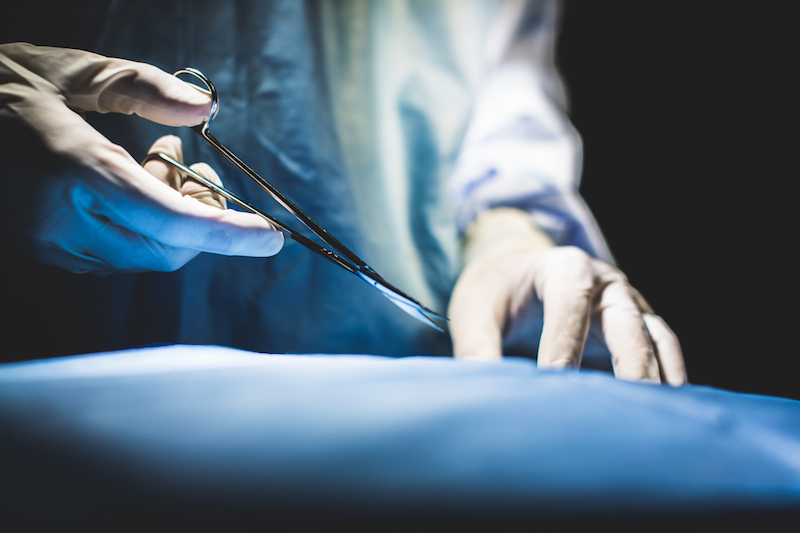I was 31 years old when the first of my friends was diagnosed with cancer. She was only 28, and it was her second diagnosis. She had battled breast cancer in college, and now it had returned.
Walking with her through treatments was eye-opening. In my life, my health issues have circled around having the flu, chipping a tooth, or pulling a hamstring—issues that tend to have simple, straightforward methods of healing and repair. Cancer, I discovered, was totally different. It varies widely—not just because cancers are different but also because bodies are different. As a result, although doctors do their best to diagnose and offer prognoses, cancer patients must be active students of their own bodies and options for treatment.
My friend survived and, even though doctors said that because of radiation treatments she’d never be able to have children, she and her husband have two.
Was this a miracle, or was it just ordinary medicine?
Misclassifying Miracles
Some say they’d have more faith in God if he would do a miracle before their eyes. If they could just see him heal a woman whose body won’t stop bleeding or touch the leg of a formerly lame man, they’d believe. They look to places like Africa or Asia, where miracles, they say, happen all the time.
Do we have less faith than Christians in such places? Maybe. But experience tells me that no one has perfect faith, and Scripture teaches that even those with little faith can find healing (Mark 9:14–29).
There are perhaps several reasons why we, in the West, don’t see miracles like people do in other places—or like people did in first-century Palestine. Justin Holcomb explores some of those reasons here.
But there is another reason: We classify ordinary medicine as the work of man, not the work of God. And this is a mistake.
God’s Many Masks

When Martin Luther studied Psalm 147:12–14, he asked himself: How, in practice, does God “strengthen the bars of Jerusalem’s gates, make peace in her borders, and fill her with the finest of wheat”? Then he answered:
God could easily give you grain and fruit without your plowing and planting. But he does not want to do so. . . . What else is all our work to God—whether in the fields, in the garden, in the city, in the house, in war, or in government—but just such a child’s performance, by which he wants to give his gifts in the field, at home, and everywhere else? These are the masks of God, behind which he wants to remain concealed and do all things.
In other words, our God loves us through the work of our fellow image-bearers. The policeman who stops traffic to let the child safely cross the street, the grocer who stocks the aisle with fruit and vegetables, the science professor who introduces the student to the depths of the oceans—each are agents of God’s providential love.
And doctors are, too. My vision hasn’t been miraculously healed, but my optometrist helps me to see. My chipped tooth didn’t suddenly regrow, but my dentist fixed it. God uses men and women working in health care to help me flourish physically. So I thank them for their ordinary work—work that has brought some measure of healing to my body.
Doctors Don’t Heal
Doctors, though, aren’t the Great Physician. As I discovered with my friend who had cancer, they can try to read the body, but they don’t always get it right. They don’t know the body nearly as intimately as the One who created it. In this sense, all recoveries—even if aided by modern medicine—are miraculous, for God takes part in them. As C. S. Lewis reflects:
There is a sense in which no doctor ever heals. The doctors themselves would be the first to admit this. The magic is not in the medicine but in the patient’s body—in the vis medicatrix naturae, the recuperative or self-corrective energy of Nature. What the treatment does is to simulate Natural functions or to remove what hinders them. We speak for convenience of the doctor, or the dressing, healing a cut. But in another sense every cut heals itself: no cut can be healed in a corpse. That same mysterious force which we call gravitational when it steers the planets and biomechanical when it heals the body, is the efficient cause of all recoveries. And that energy proceeds from God in the first instance. All who are cured are cured by him, not merely in the sense that his providence provides them with medical assistance and wholesome environments, but also in the sense that their very tissues are repaired by the far-descended energy which, flowing from him, energizes the whole system of Nature.
In other words, God is the healer—not only in the miracles that happen in far off times or places, but also in the miracles that happen at the hospital around the corner. He works indirectly through doctors, nurses, and orderlies—and he works directly on the body to make their work effective.
This is why Francis Schaeffer, toward the end of his life when he was undergoing cancer treatments at the Mayo Clinic, wrote to his friend: “How good it is to have a theology in which there is no tension between using the best medicine possible and looking directly to the Lord for answer to prayer.” He recognized that God works both indirectly through the hands of doctors and directly through the hands of prayer.
May we be people who see the miraculous in our cities, thanking medical practitioners for their work and giving God the credit.
“The Most Practical and Engaging Book on Christian Living Apart from the Bible”
 “If you’re going to read just one book on Christian living and how the gospel can be applied in your life, let this be your book.”—Elisa dos Santos, Amazon reviewer.
“If you’re going to read just one book on Christian living and how the gospel can be applied in your life, let this be your book.”—Elisa dos Santos, Amazon reviewer.
In this book, seasoned church planter Jeff Vanderstelt argues that you need to become “gospel fluent”—to think about your life through the truth of the gospel and rehearse it to yourself and others.
We’re delighted to offer the Gospel Fluency: Speaking the Truths of Jesus into the Everyday Stuff of Life ebook (Crossway) to you for FREE today. Click this link to get instant access to a resource that will help you apply the gospel more confidently to every area of your life.


































